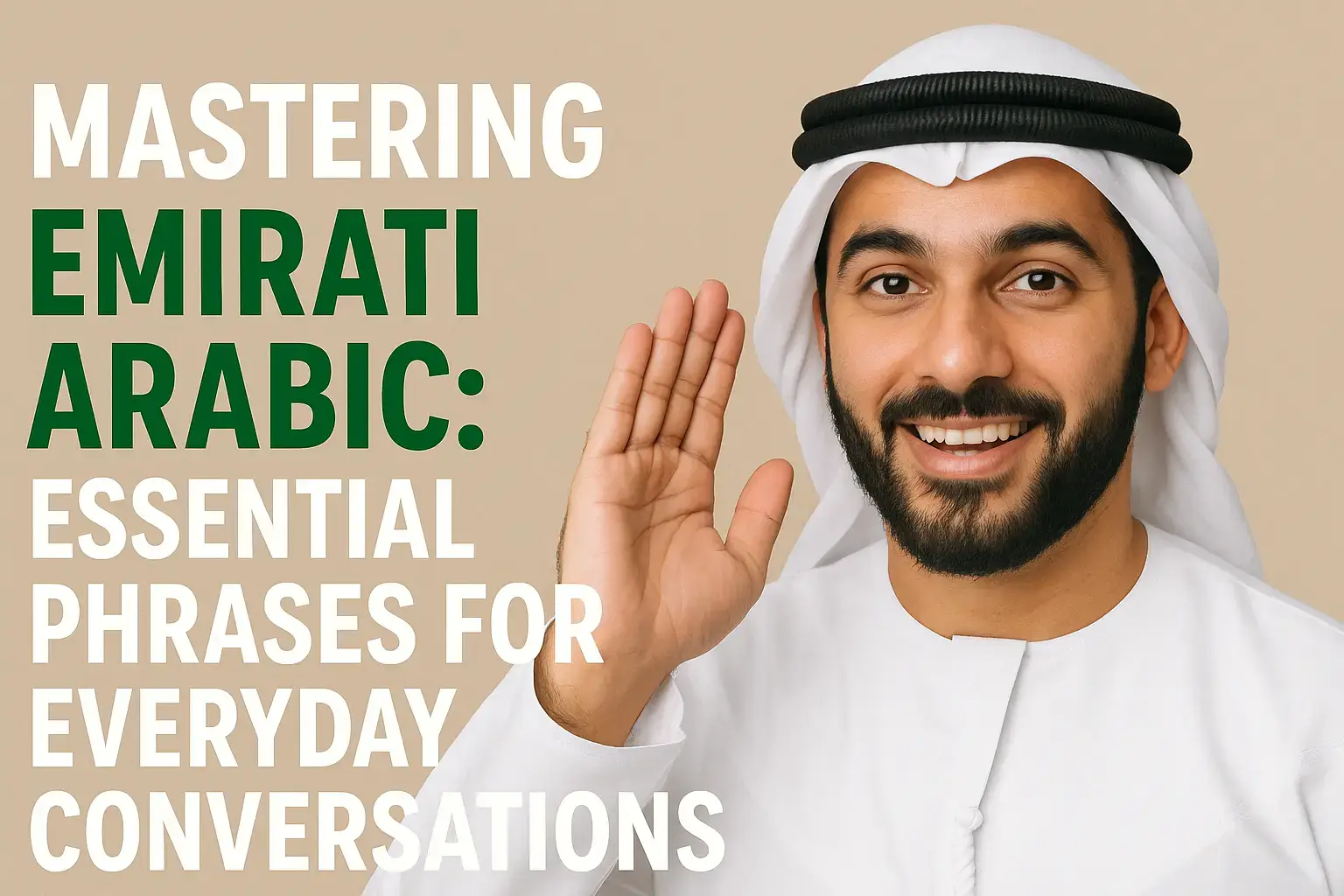
Mastering Emirati Arabic: Essential Phrases
- 28. Sep, 2025

Emirati Arabic Phrases: A Complete
- 03. Sep, 2025

Is the Business English Course
- 31. Aug, 2025

Many learners who come across the Emirati Arabic language often ask the same question: “Is Emirati Arabic easy to learn?” The answer depends on your background, your motivation, and the resources you use. While Modern Standard Arabic (MSA) is the formal version of the language taught in schools and used in media, Emirati Arabic dialect belongs to the Gulf Arabic dialect family. It is the language of daily conversations in Dubai, Abu Dhabi, and the other 7 Arab Emirates names that make up the UAE.
Unlike MSA, which can feel complex and formal, Emirati Arabic learning is often considered more approachable for beginners because it focuses on spoken communication. In this article, we’ll explore what makes the dialect easier—or more challenging—to learn, what resources exist, and how you can speed up your journey.
Unlike MSA, which can feel complex and formal, Emirati Arabic learning is often considered more approachable for beginners because it focuses on spoken communication. In this article, we’ll explore what makes the dialect easier—or more challenging—to learn, what resources exist, and how you can speed up your journey.
Before asking whether it’s easy, it’s worth asking why people want to learn Emirati Arabic in the first place. Some common reasons include:
If you already read my longer article on the difference between Emirati Arabic and Arabic, you’ll know that the dialect plays a vital role in shaping Emirati culture and everyday communication.
One of the biggest advantages of learning Emirati Arabic is that the grammar is simpler than MSA. In Modern Standard Arabic, you have to memorize complex verb endings, noun cases, and strict rules. In Emirati Arabic grammar, many of these endings disappear. For example:
Both mean the same thing, but the Emirati version feels more natural and conversational. This is why many learners find Emirati Arabic language learning more practical than starting with MSA.
Of course, no language comes without challenges. Some learners find that:
Despite these challenges, new learners are finding creative ways to overcome them.
So, what’s the best way to learn Emirati Arabic if you are serious about it? Here are practical steps:
If you want structured resources, you can also try Emirati Arabic learning books, Emirati Arabic classes in Abu Dhabi, or even Emirati Arabic conversation PDFs that teach practical dialogues.
For English speakers, Emirati Arabic translation can feel intimidating at first because of the new alphabet (UAE Arabic alphabet) and sounds. However, many learners report that once they master basic expressions like yes in Emirati Arabic (aywa) or sorry in Emirati Arabic (āsif), progress becomes smoother.
The strong presence of English in the UAE also makes life easier for learners. You’ll often find Emirati Arabic to English translators, dictionaries, and bilingual materials such as Emirati Arabic to English PDF guides. This bilingual environment helps learners practice without feeling lost.
So, is Emirati Arabic easy to learn? The answer is: it depends on your goals. If your aim is to master formal Arabic for literature or academic writing, then MSA is more suitable. But if you want to speak with Emiratis, live in the UAE, or understand Emirati culture, then Emirati Arabic is much more practical—and yes, easier to pick up in daily life.
With resources like Emirati Arabic phrasebooks, apps to learn Emirati Arabic, and even Emirati Arabic songs, you don’t need years of study to hold a conversation. Start small, learn greetings and common phrases, and gradually expand your vocabulary.
In the end, the real key is consistency. With just a little practice every day, you’ll soon discover that speaking Emirati Arabic is not only achievable—it’s enjoyable. And for a deeper cultural and linguistic comparison, don’t forget to check my article on the difference between Emirati Arabic and Arabic, where I explore the broader picture of how this dialect fits into the Arab world.